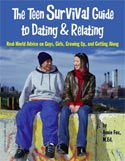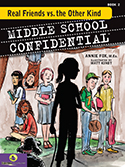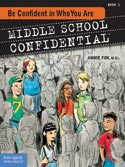|
Lesson #3: How Does Stress Make You Feel?
Activity type: Brainstorm & Discussion
Grade level: 5-8th
Time: 20-30 minutes
Educational objective: Understand the symptoms of stress on your body and emotions. |  |
Here’s How:
- SHARE: Observations from your stress triggers and attempts to get back in balance from the last Real World Challenge.
- INTRO: Everyone has stress responses. Maybe you can’t find something you need. Or a friend teases you. Or you get in a fight with your brother/sister. Or you make a mistake and people laugh. Sometimes your response to one of those situations is no big deal. Other times, you may be totally knocked off-balance. In all cases, stress creates lots of changes very quickly.
- BRAINSTORM: What physical changes do you notice when you’re stressed? NOTE: Make a running list on the board.
PHYSICAL CHANGES: Surge of adrenalin (a stress hormone); increased heart rate; rapid, shallow breathing; loss of appetite. Why does this happen?
SHORT ANSWER: Sensing danger, your brain prepares you to fight or run. A jolt of adrenalin heightens your awareness.
- Increased heart rate gets blood pumping so you can be strong and/or run fast. Quick breathing oxygenates blood. All non-essential functions shut down & energy gets re-directed to the heart, etc.
- Digestive system shuts down (stress-induced stomach aches are common).
- Immune system shuts down too. Not fighting infection now. Short-term, no harm. Long-term stress contributes to high blood pressure, ulcers, lowered immunity, etc.
- BRAINSTORM: What changes in your emotions do you notice when you’re stressed?
EMOTIONAL CHANGES are usually in the realm of anger (lashing out) OR withdrawal (shutting down). Fight or flight.
- REAL WORLD CHALLENGE: Notice your own physical and emotional symptoms to stress. Try to calm yourself down before you lose control.
| |

















